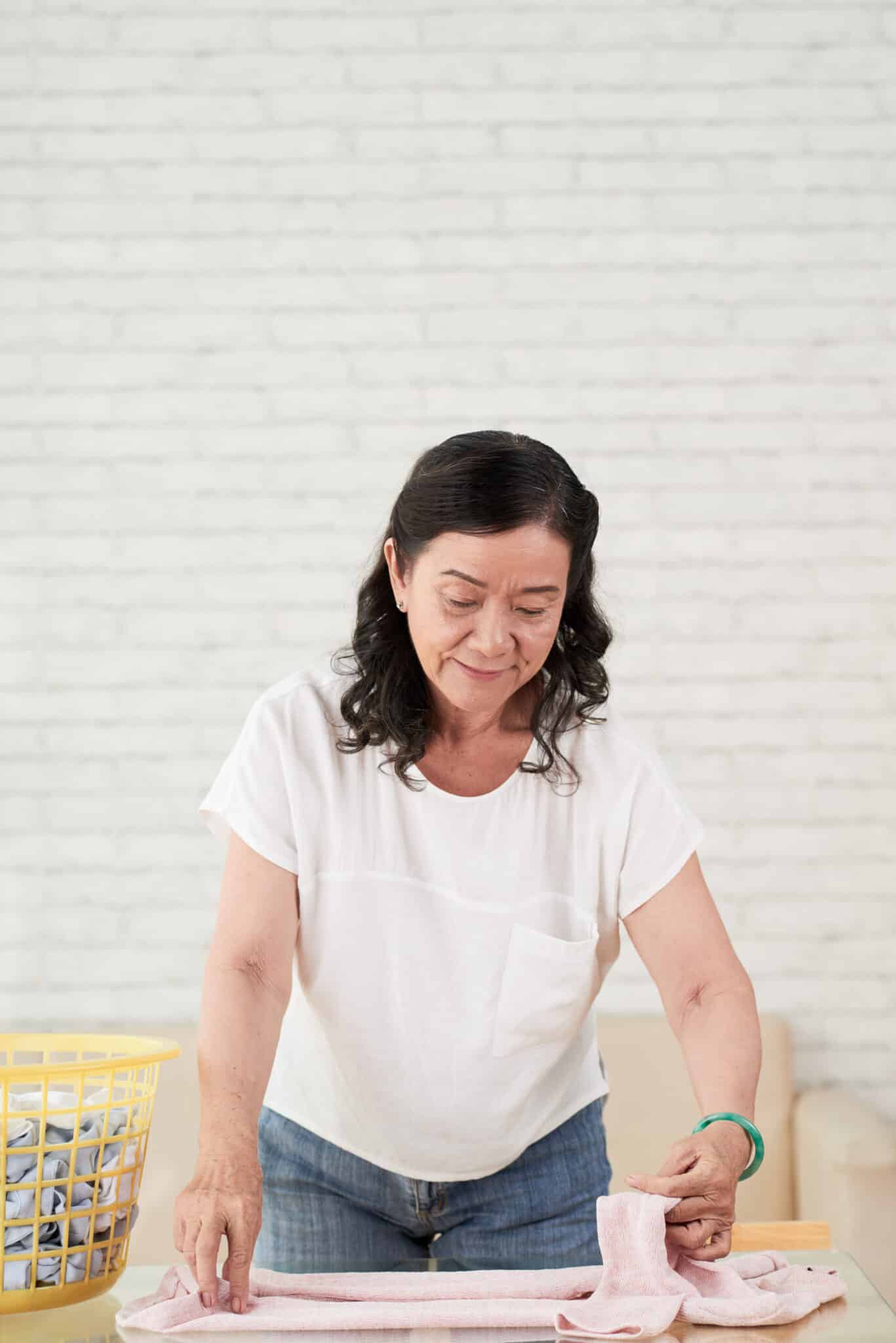Hallgasd meg a szöveget, majd válaszolj a kérdésekre!
- Hány éves volt a beszélő a történet idején?
- Hány testvére volt?
- Mit csinált a nő a gyerekekkel?
- Mit csinált vasárnaponként?
- Hogyan segítettek neki a beszélő testvérei?
- Mit kaptak a nő családjától a halála után?
- Mit nem tett a nő a beszélő emlékei szerint?
- Mit tett, mielőtt munkához látott?
- Mit érzett a nő, miután összehajtotta és elrakta a ruhákat?
- Mi történt időnként a munkája végeztével?
- Mire nem emlékszik a beszélő?

key:
1.Öt vagy hat.
2. Négy.
3. Olvasott nekik és kártyázott velük.
4. Orgonált a templomban.
5. Lenyírták a füvet a kertjében nyáron.
6. A kis fehér autót, amit vezetett, egy babát és a kártyákat.
7. Nem kérdezte meg, hogy segíthet-e.
8. Letette a kabátját.
9. Azt, hogy jól elvégezte a munkáját.
10. Elment anélkül, hogy olvasott vagy játszott volna velük.
11. Arra, hogy mennyi ideig járt hozzájuk segíteni a nő.
The woman from my childhood memories
She used to come over and fold laundry. I was probably five or six. She’d come over every few days, sit in the living room, and fold baskets of laundry. With five kids under the age of 15, there was always laundry to be folded.
Sometimes she read books to us. Other times we played cards, mostly Uno. I remember that her hands would tremble if they sat still too long, and so she liked to keep busy.
At church, on Sundays, she played the organ. My older brothers would go over and cut the grass in her garden in the summertime. I was jealous that they got to go see her more often than I did.
When she passed away, her family gave my parents the little white car she drove. They gave me one of her dolls. And one of my brothers got the Uno cards. But out of all the things I remember about her, I remember the laundry.
I don’t remember her asking if she could help. She just helped. I remember her coming in, putting her coat down, and starting to work. When she ran out of laundry, she sent us to check and see if there were any more clothes on the clothesline.
With the clothes folded and put back in the baskets to be put away, she seemed to feel like her job was done and done well. She often stayed and read, or played games with us, but sometimes she just left after she finished her work.
She saw a need – what mother of small children doesn’t need help with the laundry? – and she helped out. Not once or twice, but consistently, for such a long time that I don’t remember when it started.
source: Facebook



